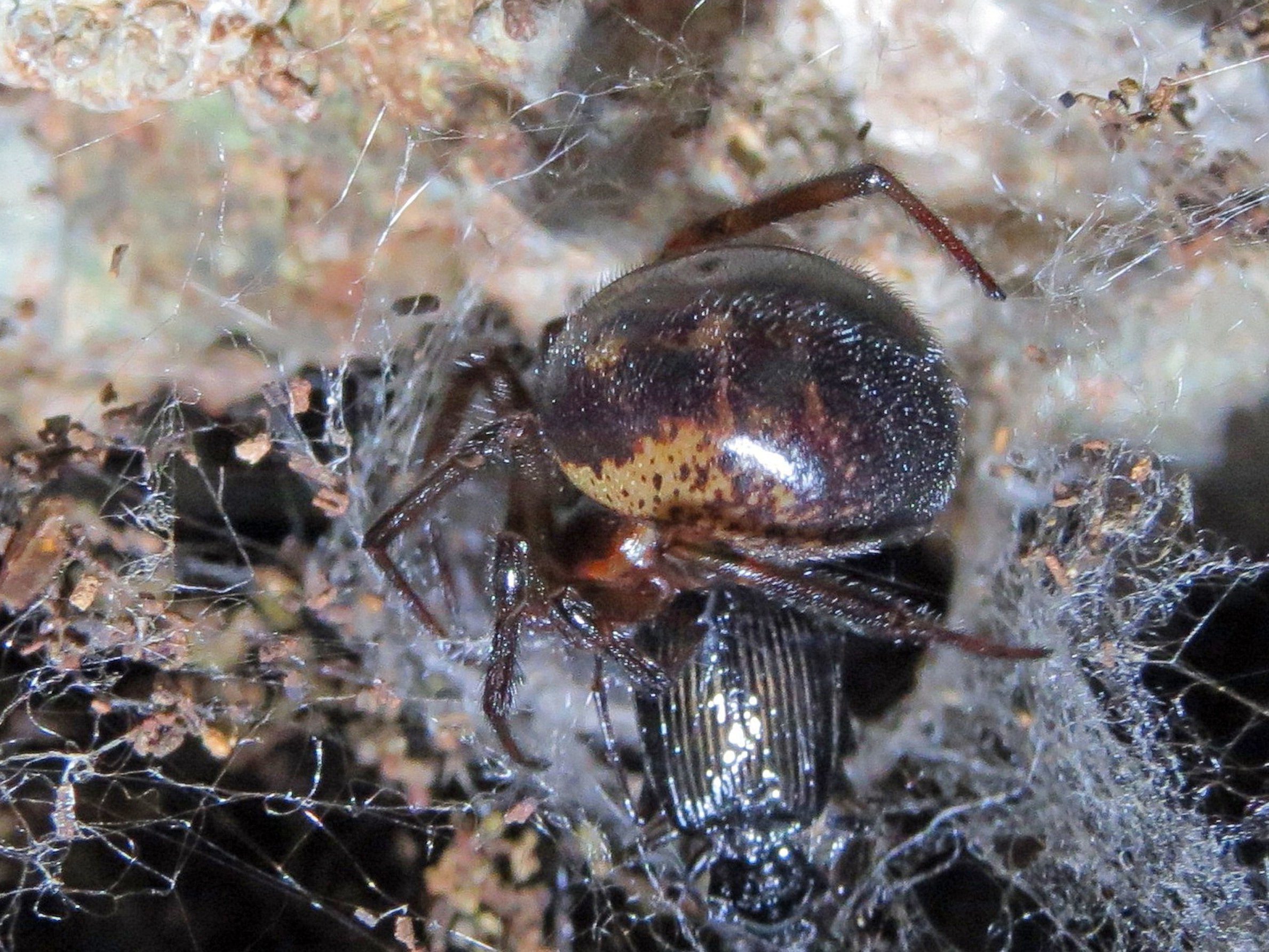False widow spiders: Closure of four London schools ‘a complete overreaction’, say scientists
'This is insane... It will make children fearful of nature'

The closure of four London schools following the discovery of false widow spiders has been criticised by scientists as a “complete overreaction”.
Arachnologists said the creatures found at two primary and two secondary schools in Newham posed virtually no risk to pupils, with one expert describing the closures as “insane”.
The spiders, which typically have bodies between 8.5mm and 11mm in length, are mildly venomous. Their bites can cause redness and swelling comparable to a wasp sting, according to Public Health England.
Newham Council said it had asked all schools and nurseries in the east London borough to “proactively check their premises” and ”a small number of infestations” were discovered as a result.
“Four schools have closed at the headteacher’s discretion to treat the infestation, which includes fumigation,” added a spokeswoman. Two schools will remain shut until 29 October, with the others expected to reopen next week.
Conservation charity Buglife described the closures as “a radical and unnecessary overreaction to the tiny risk posed”.
It suggested the spraying of insecticides during fumigation was potentially more hazardous to pupils’ health than the spiders.
“It is a shame that the education, and potentially the health, of these children is being harmed by this knee-jerk risk assessment,” added chief executive Matt Shardlow.
Science writer Jack Ashby, who manages Cambridge University’s Zoology Museum, tweeted: “This is insane. London schools will close for weeks due to some mildly venomous spiders. It will make children fearful of nature.
“Let’s remember that kids go to schools in countries where there actually are dangerous spiders.”
Lawrence Bee, spokesman for the British Arachnological Society, told The Independent: “What’s happened with these schools is a complete overreaction.
“People have probably got [false widow spiders] in their gardens. They are not aggressive, unless they are really severely provoked they tend to keep themselves to themselves, and they tend to be active at night rather than during the day.”
He said the spiders bit people “very, very rarely” and their venom would cause “a small reaction” only in those who are “particularly susceptible”.
“All this hysteria, with pest control firms going in to fumigate the school, is way over-the-top,” Mr Bee added. ”It’s not something which worth the money they are going to be spending on it.”
Newham Council did not immediately respond to a request for information on the cost of fumigating the schools.
Lister Community School, one of the two which have closed for nearly a month, said it had received “clear advice that there is a significant presence of the spiders” that needed “intensive fumigation”.
In a letter to parents, headteacher Anthony Wilson acknowledged the spiders’ bites were rare and largely harmless, but added: “We must consider that in our large school population there may be some individuals with medical conditions who could react more severely.”
The spiders found at the schools are noble false widows, the largest and most commonly reported of the four types found in the UK. The species thought to have arrived in Britain in 1879 on a shipment of imported bananas.
False widows are one of only six species of spider in the UK with fangs capable of puncturing human skin.
The NHS said false widow bites could cause nausea, vomiting and dizziness in a minority of cases, but there are no recorded deaths.
Despite that, spiders have repeatedly featured in news stories which often dramatically depict the “deadly” species “invading” British homes.
In 2015, two schools in Tower Hamlets, which neighbours Newham, temporarily closed following the discovery of false widow spiders on site.
Join our commenting forum
Join thought-provoking conversations, follow other Independent readers and see their replies
Comments
Bookmark popover
Removed from bookmarks